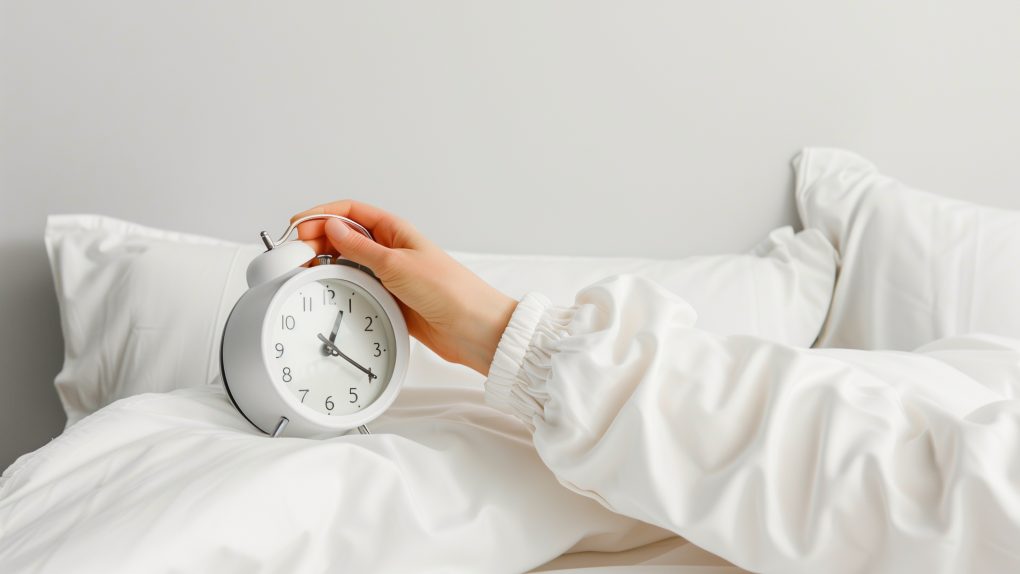
Melatonin for a Good Night’s Sleep
Sleep plays a crucial role in maintaining human health and I have written about it many times on my blog. It is essential for the proper functioning of the brain, heart, immune system, allows the body to regenerate and is an ally of weight loss (read more about it HERE). Although the optimal length of sleep varies depending on individual needs, it is usually around 7-8 hours a day. Sleep regulation is a complicated process. Today I would like to tell you a little more about one of the key hormones without which it is difficult to have a good night’s sleep, and that is melatonin.
Natural Circadian Rhythm Regulator
Melatonin is a hormone produced endogenously (inside the body) from serotonin. Its concentration increases in the late evening hours when it gets dark, reaching a maximum value between two and four in the morning. Melatonin can be called a chronobiotic, because it affects the regulation of circadian rhythms. The basic role of melatonin is to promote sleep, but it is emphasized that it has a multifaceted effect on the body (among other things, it is one of the strongest antioxidants).
Sleep is controlled by circadian rhythms, which are daily biological cycles that influence many physiological processes. Light entering the eye is detected by specific cells in the retina. These cells then send information about the light intensity and wavelength to the suprachiasmatic nucleus in the brain. Through this pathway, light information reaches the pineal gland, which controls the metabolism of melatonin.
Sleep Disorders
Studies have shown that night light causes desynchronization of circadian rhythms and disruption of hormone secretion (including cortisol and melatonin). Reduced melatonin production is observed in shift workers. The International Agency for Research on Cancer has classified night shift work as a probable carcinogen, underlining the importance of sleep in the context of health.
Nowadays, the most common causes of melatonin imbalance are jet lag, shift work, and overuse of artificial light at night. Dysfunction in the production or release of melatonin is associated with many pathological conditions, such as Alzheimer’s disease, Parkinson’s disease, depression, cardiovascular disease, and cancer.
According to American data, sleep disorders (e.g. insomnia, sleep apnea, narcolepsy) affect up to 20% of the US population. Polish data is also not optimistic. The 2021 report Poles’ Sleep showed that almost 40% of respondents were dissatisfied with the quality of their sleep during the Covid-19 pandemic.
Supplementation for Healthy Sleep
Melatonin is widely used to improve health and sleep quality. It is especially helpful for shift workers and people prone to jet lag (especially those traveling east or across five time zones). In addition, small doses of melatonin will be beneficial for people who have difficulty falling asleep, waking up early, and excessive sleepiness during the day.
Most importantly, melatonin is a safe supplement. Studies have shown that its use does not cause the development of tolerance. In the case of difficulty falling asleep, very small doses of 0.5 mg per day, taken orally about an hour before going to bed, are sometimes effective.
Melatonin can shorten the time it takes to fall asleep and improve the overall quality of sleep. Remember, however, that if you are taking any medications, you should consult your doctor about taking the supplement and its dosage.
The human body is a truly complex machine that needs to be nourished, stimulated to move and allowed to rest through regenerative sleep. Problems with falling asleep may be related to impaired melatonin secretion, so do not underestimate the impact of exposure to light in the late evening hours. Many devices today allow you to use the so-called night mode. Sometimes such a simple change can significantly improve the quality of your falling asleep
I also recommend the Sleep Well Probiotic (with added melatonin) and the calming sounds and Sleep Stories from the Diet & Training by Ann app – just start the track, put your phone aside and start your journey towards your dreams…
Good Night 🙂
Bibliography:
- Minich, D. M., Henning, M., Darley, C., Fahoum, M., Schuler, C. B., Frame, J. (2022). Is melatonin the “next vitamin D”?: A review of emerging science, clinical uses, safety, and dietary supplements. Nutrients, 14(19), 3934. https://doi.org/10.3390/nu14193934
- Podgórska, A. (2023). Sen i mózg. W Tak działa mózg: Jak mądrze dbać o jego funkcjonowanie (s. 292-294). Warszawa: Wydawnictwo Foksal
- UCE RESEARCH. (2021). Sen Polaków. Przeprowadzone dla platformy ePsycholodzy.pl
- Vasey, C., McBride, J., Penta, K. (2021). Circadian rhythm dysregulation and restoration: The role of melatonin. Nutrients, 13(10), 3480. https://doi.org/10.3390/nu13103480








Comments No Comments
Join the discussion…